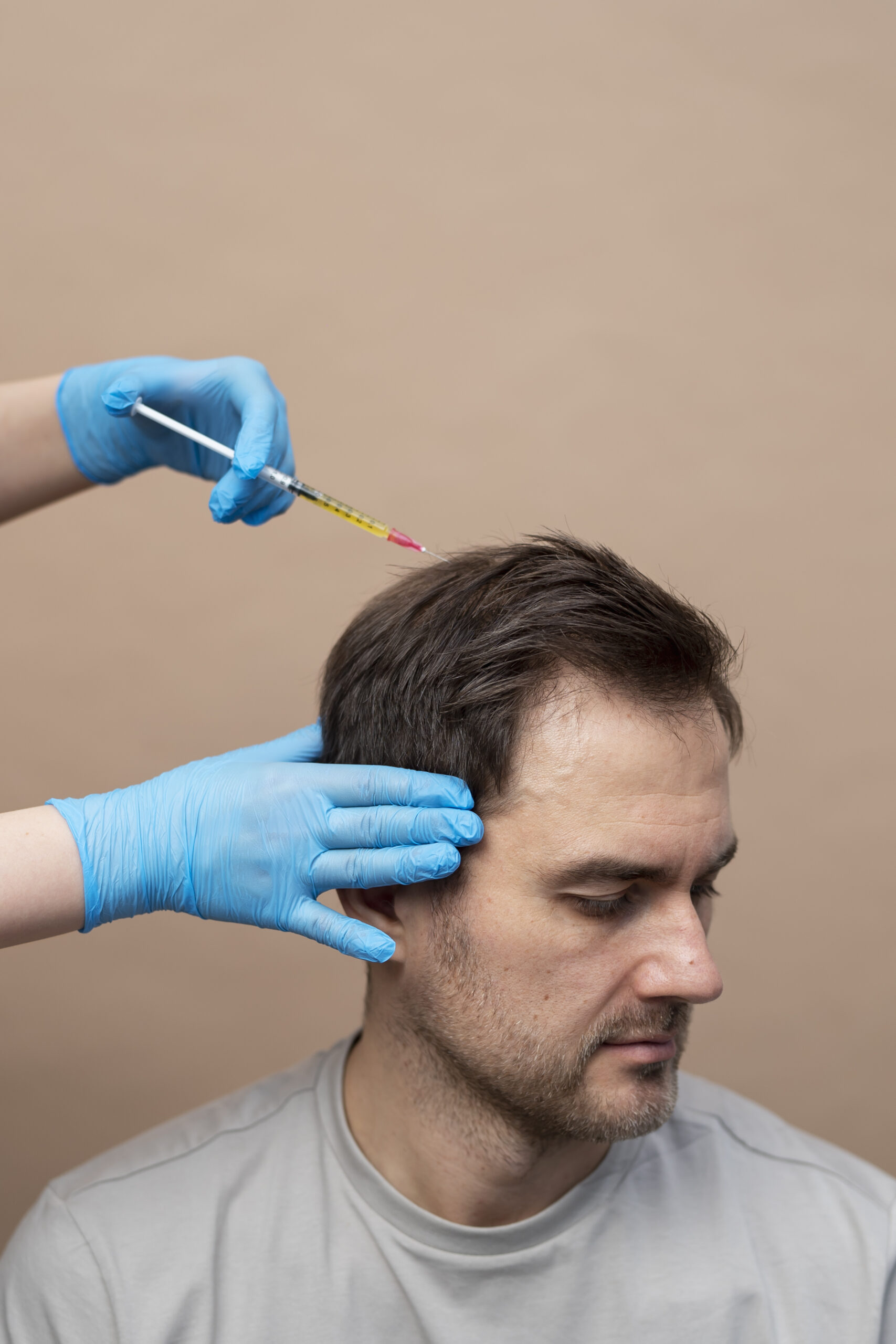
- By: auraskinandhaircosmeticclinic@gmail.com
- 23/08/2024
Understanding Hair Growth Cycles and How They Affect Your Hair Educate readers on how hair grows and what affects its cycle.
Understanding the hair growth cycle is crucial for effectively managing hair health and addressing concerns such as hair loss or growth. Here’s a detailed overview of the hair growth cycle, factors influencing it, and strategies for maintaining healthy hair.
The Hair Growth Cycle
Hair grows in a cyclical process with three distinct phases:
Anagen Phase (Growth Phase)
- Duration: Typically lasts 2-7 years, varying by individual and hair type.
- Characteristics: During this active growth phase, hair follicles produce new hair. The length of this phase determines how long your hair can grow. Approximately 85-90% of your hair is in the anagen phase at any given time.
Catagen Phase (Transitional Phase)
- Duration: Lasts 2-3 weeks.
- Characteristics: This short phase signifies the end of active growth. Hair follicles shrink and the hair strand detaches from the follicle, though it remains in place. This phase prepares the follicle for the next stage.
Telogen Phase (Resting Phase)
- Duration: Lasts 3-4 months.
- Characteristics: Hair growth ceases, and the follicle remains dormant. About 10-15% of your hair is in this phase at any time. At the end of this phase, the hair falls out, and a new hair begins to grow, restarting the cycle.
Factors Affecting Hair Growth Cycles
Genetics
- Impact: Genetics play a significant role in the length of the anagen phase and overall hair growth rate. Genetic predisposition can also lead to conditions such as androgenetic alopecia (pattern baldness).
Hormones
- Impact: Hormonal changes can impact hair growth. For instance, androgens (male hormones present in both sexes) can shorten the anagen phase and contribute to hair thinning. Hormonal fluctuations during pregnancy, menopause, or conditions like PCOS can also affect hair growth.
Age
- Impact: As you age, the anagen phase may shorten, and hair growth may slow down. Hair follicles can become less active, resulting in thinner hair.
Nutrition
- Impact: A diet rich in essential nutrients supports hair health. Deficiencies in vitamins and minerals like iron, zinc, biotin, and protein can lead to hair loss or slowed growth.
Health Conditions
- Impact: Conditions such as thyroid disorders, autoimmune diseases, and chronic illnesses can disrupt the hair growth cycle and lead to hair loss.
Medications
- Impact: Some medications, including those for high blood pressure, depression, and cancer, can affect hair growth. Consult your healthcare provider if you notice hair changes after starting a new medication.
Stress
- Impact: High stress levels can lead to telogen effluvium, a condition where more hairs prematurely enter the telogen phase, leading to increased shedding and thinning.
Hair Care Practices
- Impact: Excessive heat styling, chemical treatments, and harsh hair products can damage hair and affect its growth cycle. Gentle hair care practices help maintain a healthy growth cycle.
Seasonal Changes
- Impact: Some people experience variations in hair growth rates with the seasons. Hair may grow faster in warmer months due to increased circulation and metabolic rates.
Managing Hair Growth and Health
Maintain a Healthy Diet
- Focus on: Include a balanced diet with a variety of nutrient-rich foods such as fruits, vegetables, lean proteins, and whole grains. Nutrients like omega-3 fatty acids, vitamins A, C, D, and E, and iron are beneficial for hair health.
Practice Good Hair Care
- Tips: Use gentle shampoos and conditioners suited to your hair type. Avoid excessive heat styling and chemical treatments. Protect your hair from environmental damage by using protective products.
Manage Stress
- Methods: Engage in stress-reducing activities such as exercise, meditation, or hobbies to maintain overall well-being and minimize stress-related hair loss.
Regular Trims
- Benefits: Schedule regular trims every 6-8 weeks to remove split ends and maintain healthy hair growth, reducing breakage and promoting stronger hair.
Consult a Professional
- Advice: If you experience significant hair changes or severe hair loss, consult a dermatologist or trichologist for a thorough evaluation and personalized treatment options.
By understanding the hair growth cycle and the various factors affecting it, you can make informed decisions about your hair care routine and effectively manage any concerns related to hair health.

